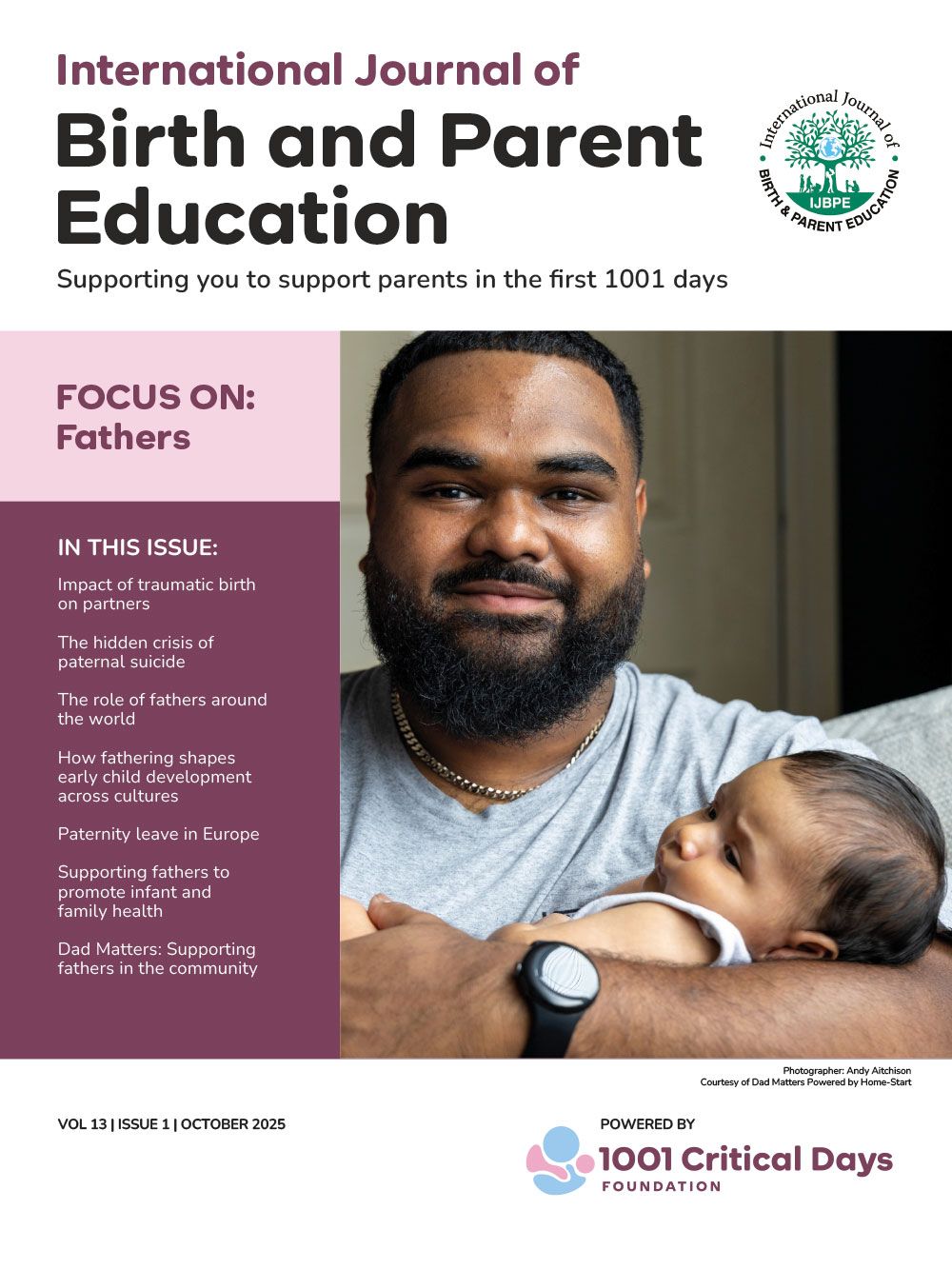1001 critical days foundation
about the journal
Whether you are a birth and parent educator, midwife, health visitor, psychologist, or early years educator – if you work with babies and families, we aim to translate research into practical support.
Since October 2025, the Journal has been powered by the 1001 Critical Days Foundation, a charity that is determined that every baby should experience the best start in life. We will use the Foundation’s resources to help the Journal reach more readers and support more parents to give their baby the best start in life.
The Journal is founded on the understanding that the earliest environment, from pregnancy through to the first years of life, profoundly shapes every aspect of a baby’s development and future potential.
The first 1001 days, from pregnancy to age two, are critically important for shaping the adults we become. During this time, babies’ brains and bodies develop at extraordinary speed, influenced by factors such as nutrition, exposure to tobacco, alcohol, and stress, all of which can have lasting effects on health, learning and behaviour. Just as vital are the relationships babies form with parents and carers: warm, consistent and responsive interactions build secure attachment, resilience and emotional wellbeing. As the science of early development continues to evolve, we are learning more each day about how best to support parents to support their babies, yet for busy practitioners, keeping up with complex and rapidly changing research can be a real challenge.
We exist to share current knowledge about the impact of pregnancy, birth and early parenting, and to promote best practice in supporting families during this crucial period. Our readers are the educators, health professionals, researchers and volunteers who work directly with mothers, fathers, co-parents and carers, empowering them to provide the support, love and stability their babies need to thrive. Recognising that the journey to parenthood begins even earlier, we also champion pre-conception education, highlighting how parents’ physical and mental health before conception plays a critical role in their baby’s wellbeing.
We are committed to advancing understanding, improving practice and ensuring that every baby can experience the best start in life.

ABOUT THE JOURNAL
IJBPE - Aims
The Journal aims to establish meaningful links between research, current knowledge and understanding, and the work of practitioners in the field of birth and parent education and support across the world.
The IJBPE also seeks to reflect and share the excitement and importance of working with mothers, fathers, kinship carers, co-parents and families in the earliest years of their children’s lives. It recognises the inter-disciplinary nature of the early intervention agenda across the transition to parenthood. This recognition is reflected in published articles written by a range of experts including psychologists, anthropologists, paediatricians, health visitors, midwives, neuroscientists, sociologists and birth and parent educators. The role and importance of peer-support organisations is fully acknowledged. The IJBPE aims to encourage the cross-fertilisation of ideas and practice between the statutory sectors and the third sector.
The Journal encourages practitioners to develop a critical relationship with birth and parent education and support programmes, and values their contributions to refining existing programmes. As a result of reading the IJBPE, practitioners will grow in confidence and ability to work in the field of birth and parent education and support, and see themselves as part of a community of knowledge and expertise.

